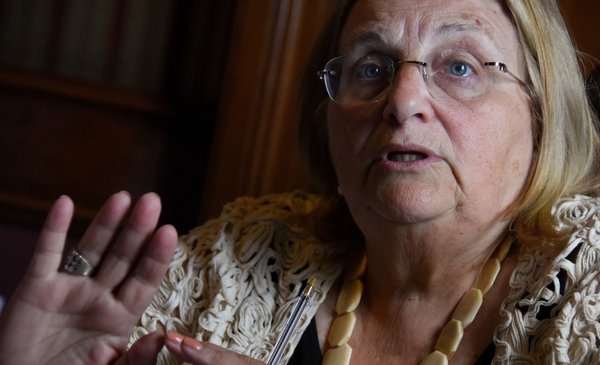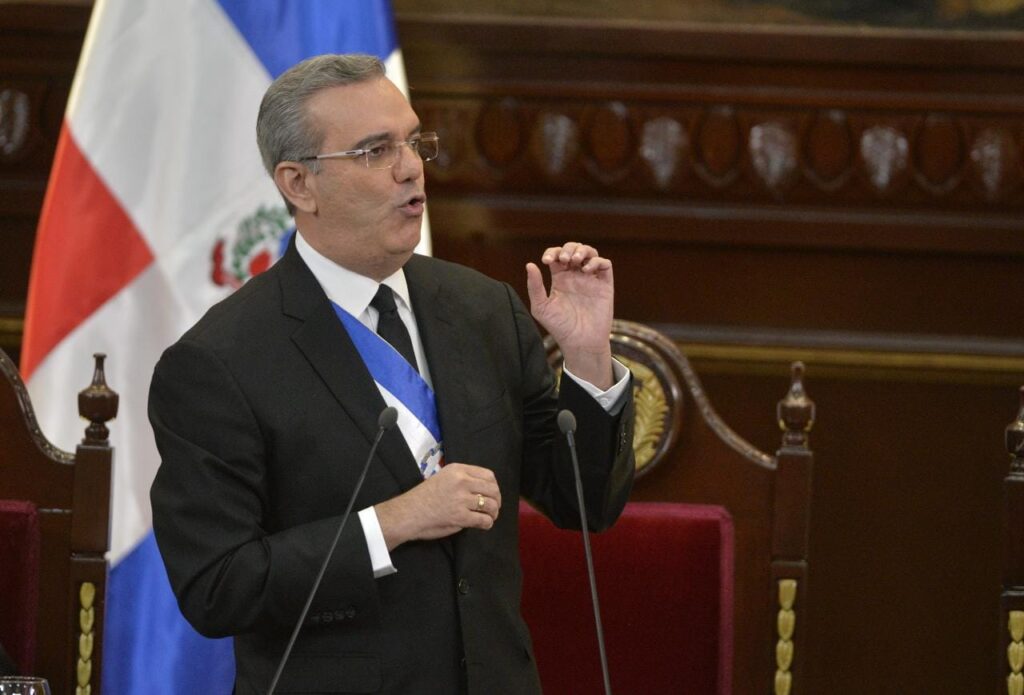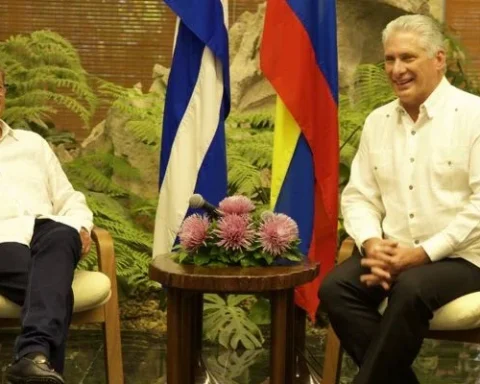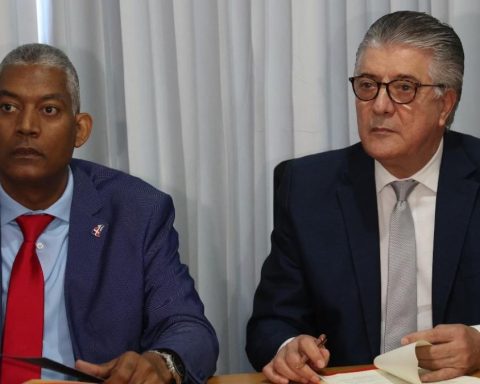A photo dedicated by Luis Lacalle Pou with the presidential sash on the day of his inauguration stands out in Graciela Bianchi’s office in the Senate. She received it as a gift at the end of July 2020, but before that she had received a claim. “Since I am president you have not come to visit me”, The president had told him days before. “I am working from here so that you continue to be the president”, was the legislator’s response.
That is how Bianchi describes the relationship with Lacalle Pou. They do not meet many times but, according to him, mutual trust is maximum. “We don’t need to talk, we guess “, ensures. “You know you can’t scold me.”
This is how the senator explains her attitude in the political debate, and what her leader can expect. She says it was clear from the moment she joined the 404 List behind her candidacy. “The first thing I told her is that I am loyal, but not unconditional” and that “it would not be the first time” that, if she did not like something, she would “turn around” and “leave”. She had already done it, she reminded herself, in the Broad Front.
Bianchi thus bases his way of standing in politics. “There are things that correspond that he, as president, does not say or do, and there are things that I, as a senator, must say and do,” he pointed. “That’s the difference between being everyone’s representative and representing those who voted for you.”
In an extensive dialogue he had this week with The Observer, The legislator said she was aware of her personality: “I was always up front.”
Bianchi says that the president never caught his attention. “He never complained to me,” he affirms, despite the wishes of leaders such as Fernando Pereira, the president of the Broad Front, who questioned his comments regarding an “infiltrated Judicial Power” and his description of the University of the Republic as a ” indoctrination plant.
Bianchi insists that Lacalle Pou never called her to order: “He respects me a lot, he has a lot of confidence in me and he knows that I am not speaking in vain.”
In free fall
And neither, at least now, back down. The senator – third in line for her presidential succession – insists, for example, that there is a “flagrant violation” of secularism in educational settings.
“There is a systematic violation of secularism in this country, for a long time. I suffered it as a student, only I thought they were right. She was wrong”.
According to Bianchi, it is a phenomenon that has been going on for several decades, but that accelerated when the Broad Front came to power. “What they did was really treacherous. Especially in the texts”, he points out.
For Bianchi everything is part of a chain: later it came from the Judiciary to the Faculty of Medicine. “Chiquilines come to me to complain, that because they are white militants they have problems and are persecuted,” accuses the senator.
If it is about correcting oneself, instead of going backwards, Bianchi goes even further: that is why now he says that in reality there are no “infiltrators”; instead, “everything is done in the open.”
His argument is that the phenomenon goes hand in hand with the drop in the academic level of education at all levels. “There are people who violate secularism but because they are incapable, because they are not culturally trained,” he launches from his parliamentary office.
His opinion does not admit half measures: “When this happens to public education, we are in free fall. Be careful with the doctors, with the engineers. Don’t stand under a bridge.”
In this field, Bianchi has just requested the intervention of the Central Board of Directors (Codicen) in the support classes for high school students dictated by the Popular Participation Movement. The president of that organization, Robert Silva, made it clear that he has no powers nor does he intend to control this type of initiative, a position with which Bianchi disagrees. “The person responsible for maintaining secularism is the Codicen,” he remarked.
His position earned him enmity with his “ex-friend” Richard Read, by also questioning the educational centers implemented by the Federation of Drinking Workers and Employees (FOEB). Bianchi is convinced that these types of activities, promoted by political groups and unions, are a form of indoctrination. “And let me discuss it with facts”, she challenges her.
Bianchi said that he will insist for the Codicen controle: “I am much more demanding with my government than I was when I was in the opposition.”
black on white
His tasks of legislative control will gain a new impetus this Tuesday, when another parliamentary period begins. There, one of the projects pending discussion is the one presented by Cabildo Abierto, aimed at establishing mandatory house arrest in cases of convicted persons over 65 years of age. Various sectors warn that the initiative’s “clear objective” is to release the soldiers and police officers held in the Domingo Arena prison for crimes related to state terrorism.
“When I legislate, I don’t do it with a first and last name,” says Bianchi, who says he agrees with the project.
The senator highlighted the report that is part of the Department of Criminal Law of the University of the Republic presented by Germán Aller, who considered that in general terms, it is “basically correct” that certain people can access a different detention system at a certain age. .
Beyond legal aspects, the senator said that her goal is “to put the true recent history black on white.” Bianchi recalled that those responsible for the guerrilla who are still alive “have a moral obligation” to “tell us what happened”, for example about the meetings they held with the military in the Florida Battalion in the years prior to the dictatorship and about the “pacts ” to which both parties reached.
In this sense, the nationalist senator criticizes the fact that the leaders of the MLN never forgave forgiveness. “I can admit that they were wrong young people, but they ruined my life”, said in the interview with The Observer.
“I would hope that they apologize to us. Our generation deserves it, those of us who never grabbed a pen to hit anyone “, he insisted, and said that he aspires to do so “before they die”.
As a representative figure, he noted former president José Mujica, and also his wife, Lucía Topolansky, or former leader Mauricio Rosencof.
In this context, he also targeted the Communist Party, which according to Bianchi should “take charge.” For example, about “how Rodney Arismendi managed to get him out of prison and take him to drink vodka in Moscow” while a leader like Jaime Pérez “was crushed”.
For Bianchi, it is about “turning the page”. He says that we must continue trying to find out what happened to the detained-disappeared. A position that he, he stressed, also has the president Lacalle Pou.
Approving the Cabildo Abierto project, according to Bianchi, would be far from turning the page but it would be a contribution to the pacification of the country; always, he insisted, on the basis of the appearance of the remains of the disappeared.
“Uruguayans have to let that part of our history flow in another way. There is a lot of hate,” she assured.
The senator said that she was able to “feel” that “hatred” last Sunday, during the wake of former minister and senator Eduardo Bonomi at the Legislative Palace. Bianchi, who held the presidency of the General Assembly on an interim basis, was present and, according to her account, she had to bear a verbal attack that did not escalate thanks to the intervention of members of the MPP.
He also felt that same “hatred” when, for example, the Senate Constitution and Legislation Commission received some organizations linked to human rights, regarding the Cabildo Abierto project. “They told us everything,” he noted. In that same area, she related, she was the daughter of Alberto Ballestrino, one of the prisoners of Domingo Arena. She “she started crying in the commission, she said that her father had nothing to do with it and that he is in prison for bearing that last name. It is logical that the relatives of the disappeared are angry, I have no right to judge them. But I was also moved by this girl.”
Bianchi recalled the case of the recently deceased Juan Carlos Gómez, who was imprisoned for three years for the murder of Tupamaro militant Roberto Gomensoro. “He was imprisoned for having blue eyes,” said the senator.
Gómez was wrongfully prosecuted. His innocence had been admitted by his comrades, José Nino Gavazzo and Jorge “Pajarito” Silveira before a court of military honor, despite the fact that they never told the civil justice system.
However, Bianchi said he disagreed with the term “relatives of political prisoners”, as those who defend the military who are imprisoned now present themselves publicly. “If what I want is to help pacify, that is a hurtful term,” said the legislator. “I will never be able to get close to the relatives of those who disappeared during the dictatorship if I use that. It’s a mistake”.
“Prone” to Delgado
Asked about the political future, the senator said she did not think about what she will do in 2024. “We will see where they need me in 404,” she told El Observador. If she is not like that, she affirms, she is not willing to join any other sector of the National Party. Bianchi says that it was the space that gave entry to many, like her, who had previously been active in the Broad Front. “If it wasn’t 404, she wouldn’t even have joined the party,” she says.
Hence, she defines herself as a “Luisista”.
For Bianchi, not only is this not the time to talk about candidacies; he says it would be a mistake to do so. “I am not the one to indicate candidates. Obviously, I am not going to hide that I am prone to Álvaro Delgado, ”he admits anyway. “I’m not proposing it, let it be clear,” he says later, although he accepts that the secretary of the Presidency could be considered a “natural successor” of Lacalle Pou.

















